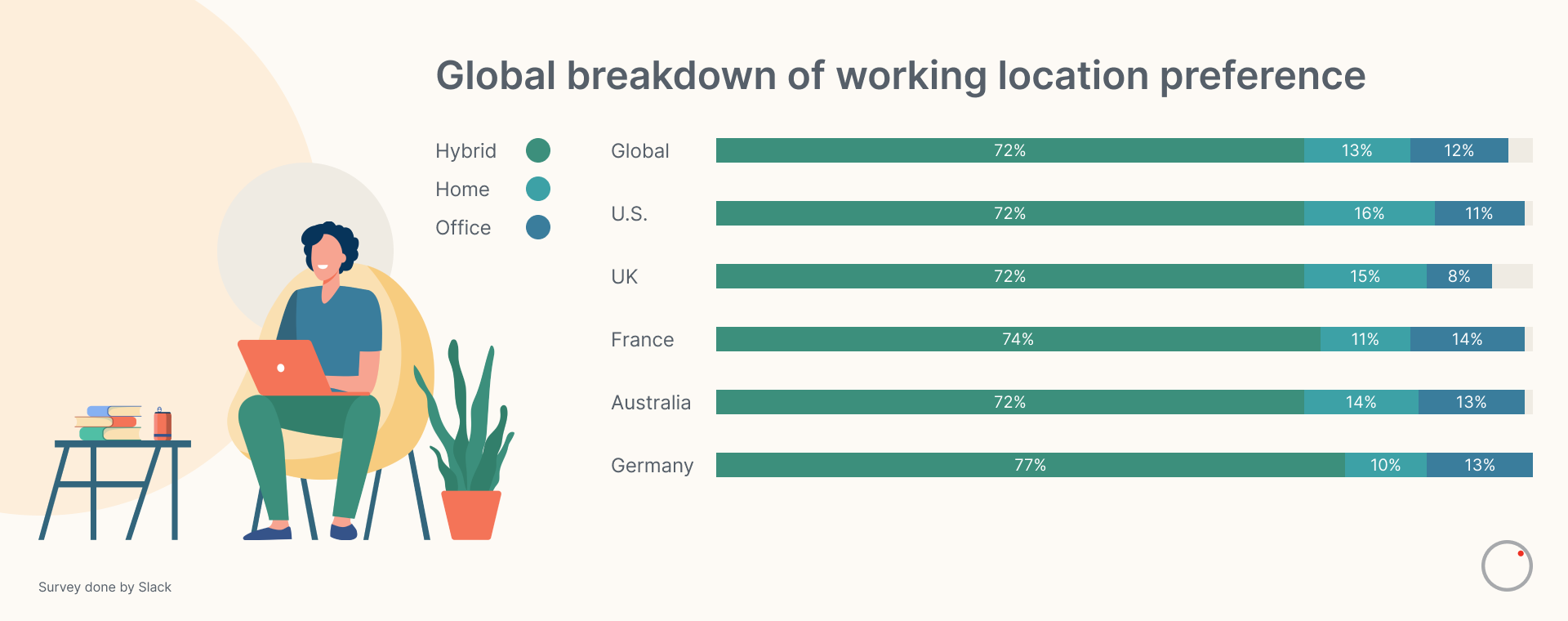The concept of the office has changed drastically in the past couple of years. Before the pandemic disrupted the sacredness that was the office, it was a mandatory place from which employees had to do work, conduct meetings, share office resources and perform their daily duties diligently. When most offices were forced to close their doors during the height of the pandemic, many companies found that work-from-home arrangements were necessary and feasible. Nowadays, as the aftermath of Covid-19 subsides and offices reopen their doors, what does ‘returning to work’ actually mean for employees?
While remote working is not a novel concept, the idea of being able to choose where we work and when we work has quickly become a priority for many of us, as the pandemic chipped away at the frills to show us what really matters – maximizing our time, caring for our health and spending time with loved ones.
Though it is too soon to tell, there is a question that ultimately will need answering: Is remote working a trend that many companies are eagerly adopting at the moment, only to shed it in the coming months and return to the pre-pandemic style of working?
There are already some countries resisting remote working, with employees gladly pouring through their office doors as Covid-19 restrictions ease. Japan1 is such a nation, and the enthusiasm to return to the workplace stems from the importance placed on workplace culture and etiquette within the Japanese society.
However, with many companies worldwide still sticking to a hybrid work arrangement, how does this decision impact building owners and landlords?
Since fewer companies are choosing to situate themselves within a physical space and many companies are looking to downsize their offices, commercial property values are falling, which means that buildings owners and landlords are suffering substantial monetary losses4. However, it is not just these parties who are losing out financially as companies cannot simply terminate their rent and lease agreements with a snap of their fingers. In the midst of downsizing, many businesses are still required to pay the full amount of rent until their contract ends, so they wind up paying more for less space.
In an attempt to recoup their financial losses, many building owners are choosing to convert their real estate properties into mixed developments5 and housing projects6, which is an innovative and environmentally friendly way of adapting to the post-pandemic fallout. Instead of constructing shopping malls and apartment buildings from scratch which will incur more carbon emissions6, choosing to repurpose obsolete buildings will breathe new life into them while keeping carbon emissions on the low side.
Given the flexibility of a hybrid work arrangement, when employees do go back physically to work, the modern office functions as a place for social interaction among colleagues as employees are not forced to be physically present – they choose to go to the office to mingle with their peers and build stronger relationships. Landlords4 in particular need to pay special attention in catering to the needs and desires of employees in order for the office to still remain a viable place for attracting top talent. In terms of providing for the tenants’ health, landlords will have to ensure that amenities that aid in one’s mental wellness are being catered, along with proper air quality and ventilation systems to create a hygienic environment so that employees do not fear for their health when they return to work.
Ultimately, whether a hybrid work arrangement becomes the new normal, or employees need to make the mandatory five-day trip back to the office, going back to work means adapting seamlessly to unforeseen challenges that may arise at any time. Should this happen, companies, building owners and landlords have a keen part to play in ensuring the safety of their workers and tenants. Additionally, businesses have to be responsible for ensuring that employees continue to be well-trained and adept at handling any future pandemic that darkens our doorstep.
1https://www.bbc.com/worklife/article/20220511-the-countries-resisting-remote-work
2https://www.reuters.com/article/us-health-coronavirus-germany-idUSKCN2MV0J1
3https://www.cisco.com/c/m/en_us/solutions/global-hybrid-work-study.html#blade-12
4https://www.businesstimes.com.sg/real-estate/working-from-home-is-terrible-news-for-landlords
5https://mothership.sg/2022/07/bedok-point-closed/
6https://www.sltrib.com/news/2022/07/04/new-kind-south-temple/

